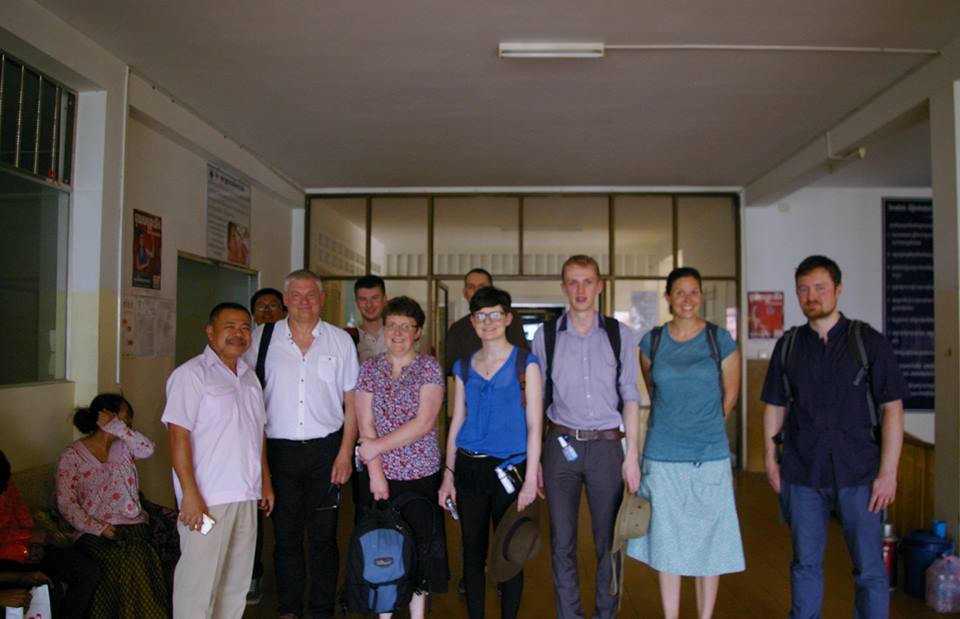The team, who were in Cambodia with the charity Transform Healthcare Cambodia was led by Graham Jones, a Senior Lecturer in the School of Health and Social Care at Teesside University. Graham was joined by Dr Sue Jones and Dr Will Taylor from North Tees and Hartlepool NHS Trust, Daniel Jones, a Medical Researcher and Emily Murray and Sam Boam, both Medical Students at Newcastle University. The team were also been joined by Dr Alison Ambrose a GP from Glasgow but currently working in New Zealand.
Graham said: “The charity was set up to provide healthcare education, training and clinical expertise to support our Cambodian colleagues in Battambang. Our aim is to help relieve sickness and to promote good health for the benefit of the public. “We send teams of doctors, nurses, consultants and medical students to Cambodia twice a year. This is the fourth visit the charity have now made to Cambodia. All team members give up their time and fund their own trips. "Last week we delivered training sessions to staff at the hospital on adult and paediatric basic life support, choking and diabetes. We also visited local villages where we educated local people on diabetes management and the prevention of diabetic foot. The training we delivered will help people with diabetes to understand their condition and its treatment better and consequently facilitate better health outcomes. "Diabetes is a major health issue in Cambodia. In rural Battambang there is very limited knowledge about the condition. People with diabetes struggle to buy medication due to cost and experience difficulty in seeking follow up resulting in chronic illness, complications and early death".
Two million Cambodian people are estimated to have died under Pol Pot’s Khmer Rouge rule in the 1970’s. During this time Cambodia’s entire healthcare system was destroyed along with equipment, supplies, infrastructure, transportation, power and water sanitation. The horrors of the Khmer Rouge years came to an end in 1979 but left Cambodia’s population decimated of its educated. It is only relatively recently that Cambodia has produced a plan to develop its health care system, which was non-existent in 1979 when less than a handful of doctors remained. Universities and training also had to start again from ‘ground zero’.
Graham finishes: “The team really enjoyed working alongside our colleagues in Cambodia, sharing their clinical and professional experience to empower them to improve health care whilst gaining a better understanding of working within a challenging, often under resourced environment, whilst being respectful of cultural differences. “I’d encourage other healthcare staff in the North East to consider volunteering overseas. Volunteering provides real benefits to NHS staff, giving staff a fresh perspective and new skills that can be applied to their work in the NHS. Healthcare staff who volunteer gain professional and personal skills that are transferable to the NHS which benefit staff and patients ultimately helping them to improve the quality of care we provide to patients”.
The charity returns to Battambang in August with the first ever cohort of student nurses from Teesside University and send another team out to Cambodia in November.
To find out more about Transform Healthcare Cambodia, visit www.transformhealthcarecambodia.org.uk

